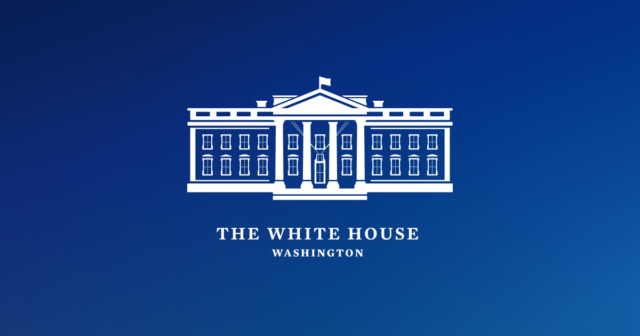
In addition, federal agencies awarded a record $183 billion in federal contracting opportunities to small businesses and $78billion to small disadvantaged businesses in 2024.
Since President Biden and Vice President Harris took office, American entrepreneurs have filed a record 21 million new business applications. The Biden-Harris Administration has overseen for the fastest rate new business applications on record with entrepreneurs filing an average of over 440,000 applications every month, a rate over 90% faster than pre-pandemic averages. This historic wave of entrepreneurships is happening in communities across the country—with the most new business applications in any Presidential administration on record.
Further, federal agencies made record awards to small businesses and small disadvantaged businesses in Fiscal Year (FY) 2024. The federal government is the world’s largest purchaser of goods and services, giving it a critical role in creating opportunities for entrepreneurs. In FY24, federal agencies awarded a record $183 billion in federal contracts to small businesses—representing 28.78% of all eligible federal contracting dollars. These federal contract awards enable small business growth, supporting more than one million jobs in manufacturing, construction, defense, and other core industries. Federal agencies also awarded a record $78 billion to small disadvantaged businesses.
Small business are the engines of our economy and the heart and soul of our communities. They powered our economic recovery and make our economy the strongest in the world. They account for more than 40 percent of GDP, create around two-thirds of new jobs, and employ nearly half of all private sector workers. The Biden-Harris Administration has stood firmly behind small businesses, powering the small business boom by:
- Oversaw historic increases in business ownership and new business creation among underserved communities. Business ownership has doubled among Black households and hit a 30-year high for Hispanic households; new business creation rates hit a 30-year high for Asian Americans; and women own a higher share of businesses than before the pandemic.
- Supporting small business through the COVID-19 pandemic. The Biden-Harris Administration made significant investments to keep small business afloat during the COVID-19 pandemic. The Small Business Administration (SBA) provided over $450 billion in total emergency relief to more than 6 million small businesses. The Biden-Harris Administration made reforms to the Paycheck Protection Program that, compared to the first rounds of the program under the previous Administration, increased loans to small businesses in low to moderate income communities by 67%, rural small businesses by 40%, and businesses with less than 20 employees by 35%. Further, through the Restaurant Revitalization Fund, the SBA provided more than 100,000 restaurants, bars, and other eligible small businesses a total of over $28 billion, including $18 billion to underserved restaurant owners. Finally, the American Rescue Plan’s State and Local Fiscal Recovery Fund enabled states and localities to support small business through the pandemic with $5 billion in these funds supporting small business assistance programs.
- Backing record levels of lending through the Small Business Administration. In FY2024, the SBA backed an historic $56 billion in capital to small businesses and disaster impacted communities, providing over 100,000 financings in the forms of loans, investments, and surety bond guarantees to small businesses. The SBA tripled its lending to Black-owned business, doubled lending to Latino-owned and women-owned small businesses, and significantly increased lending to businesses owned by Native, Veteran, and rural entrepreneurs compared to FY20. The SBA also prioritized increasing access to small dollar loans, doubling the number of loans under $150,000.
- Investing in small businesses by funding hands-on assistance to help entrepreneurs successfully access capital and grow and scale their businesses. Federal agencies provided extensive hands-on support to ensure small businesses could fully benefit from federal programs and access broader markets. Building on established SBA programs—offered through Regional Field Offices, Small Business Development Centers, Veteran’s Business Outreach Centers, Women’s Business Centers, and SCORE mentoring—the American Rescue Plan made the largest-ever federal investment in small business navigator services through the Small Business Community Navigators Pilot Program. This initiative provided training to over 350,000 entrepreneurs and one-on-one counseling to more than 33,000 small business owners. Additionally, the plan included the largest federal investment in small business incubators and accelerators via the Minority Business Development Agency’s Capital Readiness Program. The Bipartisan Infrastructure Law built on this success by making the MBDA permanent and expanding the agency, allowing MBDA to increase their programs and outreach to underserved businesses. Through Treasury’s SSBCI technical assistance grants and Small Business Opportunity Program awards, the Federal government is partnering with local and non-profit organizations to ensure entrepreneurs receive the support they need, no matter where they live.
- Lowering costs for small businesses through the Inflation Reduction Act (IRA). The IRA saved small business owners money in a number of areas. The IRA allowed small businesses to deduct up to $1.00 per square foot of their business for making high energy efficiency upgrades, created a tax credit to cover 30% of the cost of switching to solar power, and lowered health care costs that burden small business owner’s budgets by capping the cost of insulin for seniors at $35 a month and the cost f out-of-pocket prescription drugs costs for seniors at $2,000 , and preserving the American Rescue Plan’s premium tax credit supports for the Affordable Care Act—saving millions of small business owners and self-employed workers an average of $700 per year on their health insurance premiums.
- Expanding access to capital across the country through the State Small Business Credit Initiative (SSBCI). Through SSBCI, the American Rescue Plan is providing nearly $10 billion to support small business loan and venture capital programs run by states, territories, and Tribal governments. By the end of 2023, SSBCI funding had already spurred $3.1 billion in public and private financing for small businesses, including $1.2 billion in venture capital financing. The program is expected to assist up to 200 investment funds throughout its duration. SSBCI places a strong emphasis on underserved and very small businesses; as of December 2023, 75% of supported transactions benefited underserved businesses, while 78% supported businesses with fewer than 10 employees.
- Expanded and reformed the Small Business Investment Company (SBIC) program to expand access to equity capital. SBICs are SBA-licensed privately managed investment funds that make debt and equity investments in small businesses using SBA-guaranteed funds. Over the course of the Biden-Harris Administration, SBICs deployed over $30 billion in financing to more than 3,100 U.S. small businesses and startups, with more than 28 percent of SBIC financings going to underserved small businesses, including women-owned, minority-owned, and veteran-owned small businesses and small businesses located in low median income areas (LMIs). Additionally, the Biden-Harris Administration expanded the SBIC program to include new types of licenses tailored to align with long duration equity investment in earlier stage and capital-intensive industries or enable a fund of funds model to invest equity in new and emerging funds – particularly funds serving underserved small businesses and startups. Under the Biden-Harris Administration, the number of jobs supported by underserved small businesses financed by SBICs are estimated to have increased by 75 percent to 350,000 between fiscal year 2020 and fiscal year 2023.
###
Mortgage News From Whitehouse.gov






